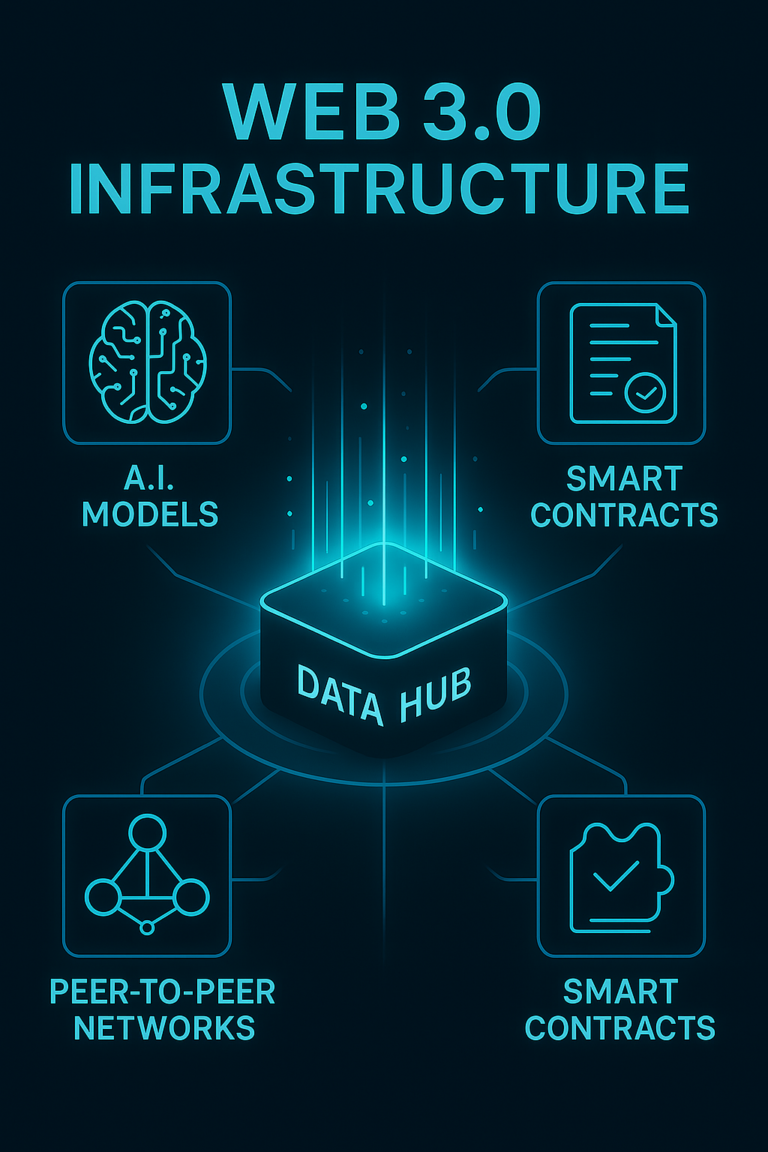The decentralized nature of Web3 promises to revolutionize how we interact online, offering greater control over our data and empowering individuals. However, the promise of a truly private and anonymous Web3 experience remains largely unfulfilled. This is where privacy-focused protocols come into play. These innovative solutions aim to enhance user anonymity and data security within the decentralized ecosystem, ensuring a more private and secure Web3 experience for all.1
The Need for Privacy in Web3
While blockchain technology offers transparency and immutability, it can also expose user identities and activities. Public blockchains, by their very nature, record all transactions publicly.2 This lack of privacy can have significant implications:
- Surveillance Risks: Public blockchains can be used to track user activities, potentially exposing sensitive information to third parties.3
- Censorship Risks: Governments and other entities could potentially use blockchain data to censor or restrict access to certain applications or services.
- Privacy Concerns: The exposure of personal information on public blockchains can raise serious privacy concerns for individuals.4
Privacy-Enhancing Protocols in Web3
Several innovative protocols are being developed to address these privacy concerns and enhance user anonymity within the Web3 ecosystem:
- Zero-Knowledge Proofs (ZKP): ZKPs allow users to prove the validity of information without revealing any underlying data.5 For example, a user can prove that they are over 18 years old without revealing their exact age.6
- Mixnets: Mixnets shuffle and re-route transactions to obscure the origin and destination of funds, making it difficult to track user activity.7
- Private Blockchains: Private blockchains restrict access to specific entities, allowing for more controlled and private transactions.8
- Decentralized Identifiers (DIDs): DIDs enable users to control their own digital identities, allowing them to share only the necessary information with specific entities.9
- Homomorphic Encryption: This advanced cryptographic technique allows computations to be performed on encrypted data without10 decrypting it, preserving11 privacy throughout the entire process.12
Applications of Privacy-Focused Protocols
Privacy-enhancing protocols have a wide range of applications within the Web3 ecosystem, including:
- Private Transactions: Enabling private and untraceable transactions for cryptocurrencies and other digital assets.
- Anonymous Communication: Facilitating anonymous communication and messaging within decentralized applications.
- Private DeFi: Enabling private and secure financial transactions, such as lending, borrowing, and trading.
- Data Privacy in Decentralized Applications: Protecting user data and ensuring privacy within various dApps, such as social media platforms, e-commerce platforms, and healthcare applications.
- Private Voting and Governance: Enabling private and secure voting within decentralized organizations (DAOs) and other governance mechanisms.13
Challenges and Considerations
Despite their promise, privacy-enhancing protocols also present several challenges:
- Complexity: Implementing and utilizing these protocols can be complex and may require specialized knowledge.
- Performance Overhead: Some privacy-enhancing techniques can increase transaction costs and processing times.14
- Usability: Ensuring that privacy-preserving technologies are user-friendly and accessible to a wider audience is crucial.
- Scalability: Scaling privacy-preserving solutions to handle a large number of users and transactions can be challenging.
- Regulation: The regulatory landscape around privacy-enhancing technologies is still evolving, and there is a need for clear guidelines and regulations.
The Future of Privacy in Web3
The future of Web3 depends on our ability to balance transparency and privacy. Privacy-enhancing protocols are crucial for building a truly decentralized and user-centric Web3 ecosystem. Continued research and development in this area will be essential to overcome the current challenges and unlock the full potential of privacy-preserving technologies.
Conclusion
Privacy is a fundamental human right, and it is equally important in the digital realm. Privacy-focused protocols are essential for building a truly decentralized and user-centric Web3 ecosystem. By enhancing user anonymity and data security, these protocols will empower individuals to take control of their digital identities and participate in the Web3 revolution with confidence.
Frequently Asked Questions (FAQs)
- What are privacy-focused protocols in Web3?
- Privacy-focused protocols are technologies that enhance user anonymity and data security within the Web3 ecosystem.15
- Why is privacy important in Web3?
- Privacy is essential for protecting user data, mitigating surveillance risks, and ensuring a secure and trustworthy Web3 experience.16
- What are some examples of privacy-enhancing protocols?
- Zero-Knowledge Proofs (ZKPs), Mixnets, private blockchains, Decentralized Identifiers (DIDs), and homomorphic encryption.17
- How do ZKPs enhance privacy in Web3?
- ZKPs allow users to prove the validity of information without revealing any underlying data.18
- What are the benefits of using privacy-preserving technologies in Web3?
- Enhanced user anonymity, improved data security, and increased trust in decentralized applications.19
- What are the challenges of implementing privacy-enhancing protocols?
- Complexity, performance overhead, usability, scalability, and regulatory challenges.
- How can privacy-enhancing protocols be used in DeFi?
- Enabling private and secure financial transactions, such as lending, borrowing, and trading.20
- What is the role of DIDs in enhancing privacy?
- DIDs enable users to control their own digital identities, allowing them to share only the necessary information with specific entities.21
- How can homomorphic encryption improve privacy in Web3?
- Homomorphic encryption allows computations to be performed on encrypted data without decrypting it, preserving privacy throughout the22 entire process.23
- What is the future of privacy in Web3?
- The future of privacy in Web3 depends on continued research and development of privacy-enhancing protocols and the creation of a regulatory framework that supports privacy and innovation.
- How can users protect their privacy in Web3?
- By using privacy-preserving tools and services, carefully reviewing privacy policies, and being mindful of the data they share online.
- What are the ethical implications of privacy-enhancing technologies?
- It is crucial to ensure that privacy-enhancing technologies are used responsibly and do not enable illegal activities.
- How can we ensure the widespread adoption of privacy-enhancing protocols?
- By raising awareness, promoting education, and developing user-friendly and accessible solutions.
- What role does regulation play in promoting privacy in Web3?
- Clear and well-defined regulations are needed to protect user privacy while fostering innovation in the Web3 space.24
- How can we balance privacy with the need for transparency in Web3?
- By finding innovative solutions that can provide transparency while preserving user privacy.















+ There are no comments
Add yours